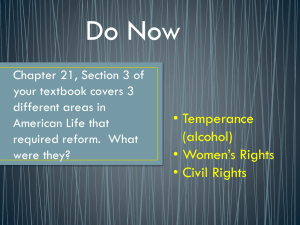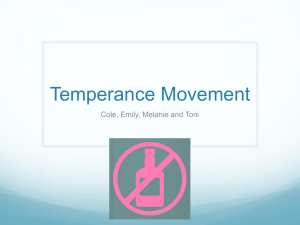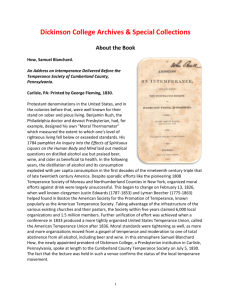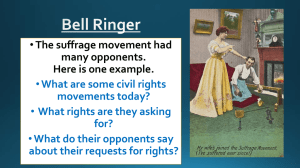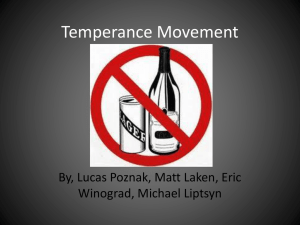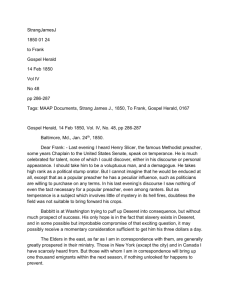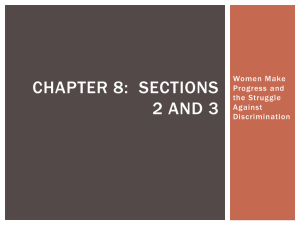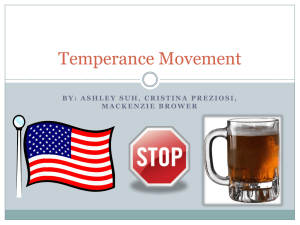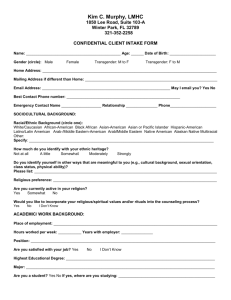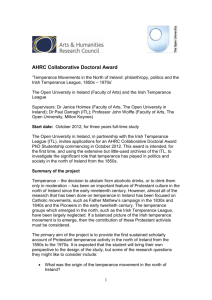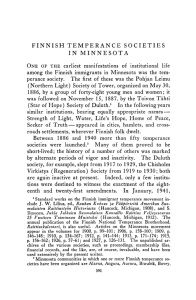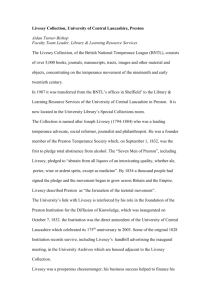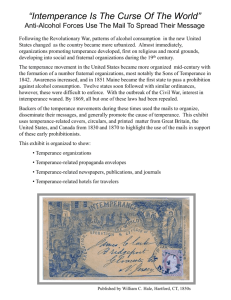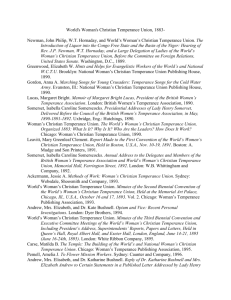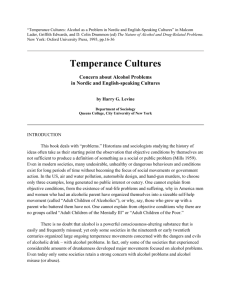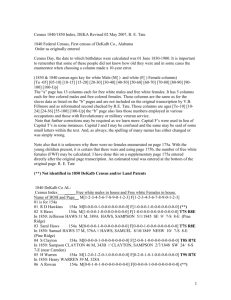Document 2: Notices from the Massachusetts Spy
advertisement
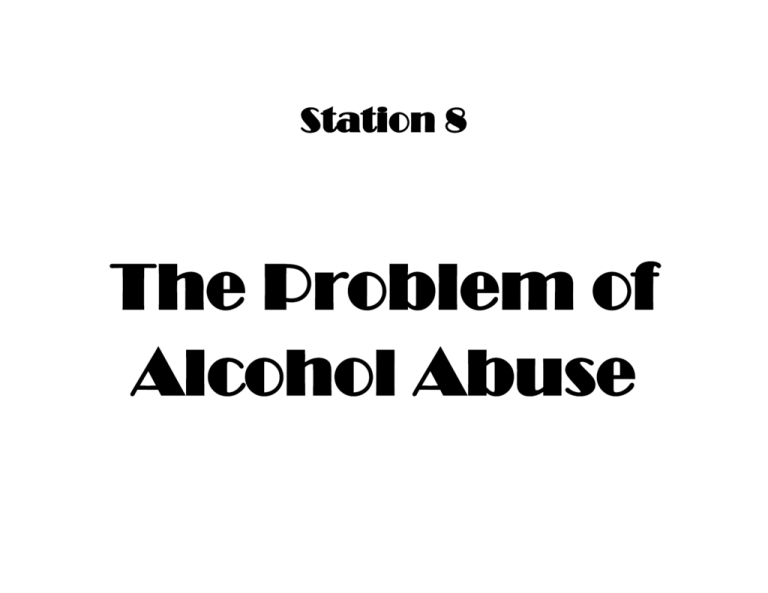
Station 8 The Problem of Alcohol Abuse Alcohol Abuse Questions to Consider Document 1: Scale of Temperance, and Excess in Drinking Liquors; and their Consequences 1. This was written by a doctor in the late 1700s. What do you learn about the beliefs people had about alcohol abuse? 2. What specific evidence from the document supports the conclusions you drew in question 1? Document 2: Notices from the Massachusetts Spy 3. These were two articles printed in a newspaper in Massachusetts. What do you learn about the problem of alcohol abuse from these two notices? 4. What specific evidence from the document supports the conclusions you drew in question 3? Document 3: A Warning to the Young 5. This is an excerpt from a book that was meant to be read by young people. What do you learn about the problem of alcohol abuse from this excerpt? 6. What specific evidence from the document supports the conclusions you drew in question 3? A Warning to the Young Background Notes The Youth’s Temperance Lecturer was a book written by Charles Jewett a Bostonian author in favor of the Temperance Movement. The preface of the book establishes Mr. Jewett’s purpose and expectations for his book. He wrote it in order to fill a perceived deficiency in the libraries of educators regarding temperance issues, and wrote to the young people in order to educate them more fully regarding the dangers and pitfalls of intemperance. Excerpt “This, little reader, is not fancy sketch, but a representation of what actually took place in the town of Foster, Rhode Island. A poor drunkard went home to his family one day from the ale house in a great rage, and began to beat his wife, who fled from the house, leaving her little boy behind her. She did not once think of his hurting the child, who he loved very dearly when he was sober. But being maddened by the poison he had drunk, and not knowing what he was doing, he caught up the poor boy and dashed his head against the jambs of the fireplace. The alarm was raised, and the neighbors ran in, but too late to save the child. When the poor wretch was brought before the court to answer for his crime…a gentleman who was present at the time, told me he never saw a person in such agony as was that wretched man. He had become sober; his senses had returned, and he realized what he had done, and he bowed down his face and mourned and wept as though his heart would break. How do you think the hard-hearted rum-seller, who poured out the poison to the poor man, would have felt if he had witnessed the scene? The largest number by far of those wretched men and women who are now shut up in the jails and prisons in different parts of the country, would never have committed the crime of which they have been guilty, had they never allowed themselves to use strong drinks. And remember, little reader, that if you swallow these poisonous drinks, you cannot tell what you may be left to do, or what you may be made to suffer in consequence.” That wretched man, O! curse not him; The fire was in his soul Madness was burning in his brain His rage know no control. But pity him; a woe was his Untold by human tongue; O! when he saw his murdered boy, How was is sad heart wrung! But if you cannot pity him, Whose soul was withered up, How will ye look upon the wretch That poured to him the cup? Notices from the Massachusetts Spy (1850) Notice. October 9, 1850 On the twenty-fourth day of September last, Rebecah, my wife, and Abgenett, my daughter, left my bed and board without any provocation, when I have made ample provision for their support, and I therefore forbid all persons harboring or trusting them on my account, for I shall not pay any debts of their contracting from date, and any person employing said Rebecah my wife, or daughter, must pay me a fair compensation for her services. Berlin, Oct. 1, 1850 CALVIN SMITH, JR. Notice. October 9, 1850 Whereas, Calvin Smith, Jr. has cried me down in the Spy, as having left his bed and board without any provocation, and also that he has provided ample means for my support, this is to inform all, that what he has stated is false, he got drunk, and beat me on the side of the head, and it was not the first, second nor third, and ordered me out of his house, and forbid me entering it again, and as to his supporting me, I have never been any expense since I was married to him, I have found my own clothing and my children and the most of his children clothing, for three years, and he has had several hundred dollars by me, and he is now under two hundred dollars to keep the peace towards me. I pay all of my own debts and let him have money to pay his. Berlin, Oct. 7, 1850 REBEKAH SMITH. From the collections of the American Antiquarian Society. The Massachusetts Spy. October 9, 1850 Edited by the Museum Education Department at Old Sturbridge Village This primary source is part of the Temperance Reform in the Early 19th Century unit produced by teachushistory.org Temperance = Abstinence from alcoholic drink
